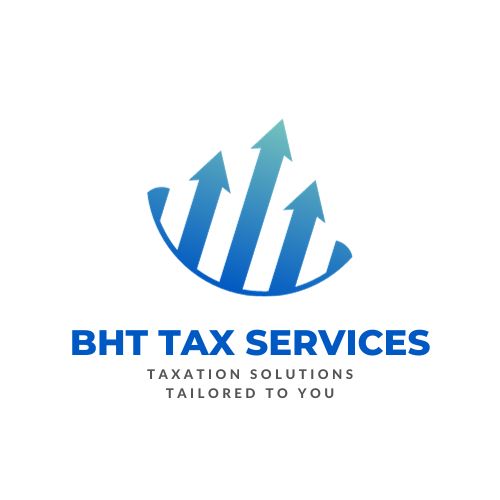
The Importance of Bookkeeping for Business Health
Effective bookkeeping is a foundational element of any successful business, regardless of size or industry. At its core, bookkeeping involves the systematic recording, classifying, and organizing of financial transactions, ensuring that your financial records are accurate and up to date. Whether you are a small business owner or managing a large corporation, maintaining proper bookkeeping practices can prevent financial errors, help with tax filing, and provide you with valuable insights into your business’s overall financial health.
In this comprehensive guide, we will delve into the intricacies of bookkeeping, exploring its benefits, essential practices, common mistakes to avoid, and the tools available to streamline the process. Understanding the nuances of bookkeeping is essential for making informed business decisions and ensuring long-term success.
Why Bookkeeping is Crucial for Your Business
Bookkeeping is far more than just a task of keeping receipts and invoices organized. It is an essential process that provides clarity on how your business is performing financially. Here are several reasons why bookkeeping is vital:
- Financial Visibility: Bookkeeping offers a detailed and organized overview of your company’s financial status. Accurate records give you insights into your income, expenses, and profitability.
- Tax Compliance: Businesses are legally required to file taxes on time. Proper bookkeeping ensures that you have all the necessary financial data at hand when it’s time to file, minimizing the risk of tax errors or penalties.
- Financial Planning: When you have clear financial records, it becomes easier to make decisions related to budgets, investments, and growth strategies. Accurate bookkeeping ensures you know exactly where your money is going.
- Investor and Lender Confidence: Accurate bookkeeping is crucial if you intend to attract investors or apply for loans. Clear, reliable financial records provide confidence to potential investors and lenders that your business is financially sound.
- Avoiding Fraud: When transactions are recorded correctly, it reduces the likelihood of fraud or theft within the business. Proper bookkeeping creates an audit trail, making it easier to identify discrepancies.
Key Components of Bookkeeping
To ensure your bookkeeping process is effective, there are several key components that should be included. These components ensure that you have a clear, comprehensive, and accurate set of financial records.
1. Chart of Accounts
The chart of accounts is a comprehensive list of all the accounts used in your business’s financial transactions. It organizes your finances into categories such as revenue, expenses, assets, liabilities, and equity. These categories help to organize financial statements and ensure your records are organized and easy to analyze.
2. General Ledger
The general ledger is a detailed record of all financial transactions in your business. It includes entries for every financial event, categorized according to the chart of accounts. The general ledger acts as the primary source of information for your business’s financial reports, including the balance sheet and profit and loss statement.
3. Accounts Payable and Receivable
Accounts payable and receivable track the money you owe and are owed by others. Accounts payable includes amounts your business owes to vendors and suppliers, while accounts receivable tracks the money owed to you by clients or customers. Efficient management of both accounts is crucial to maintaining cash flow and ensuring financial health.
4. Financial Statements
Financial statements are reports that provide an overview of your business’s financial performance and health. The key financial statements include:
- Income Statement: Summarizes your revenue, expenses, and profits over a given period.
- Balance Sheet: Displays your business’s assets, liabilities, and equity at a specific point in time.
- Cash Flow Statement: Tracks the flow of cash into and out of your business, highlighting your liquidity position.
These statements are essential for tracking performance, identifying trends, and making informed decisions.
Best Practices for Effective Bookkeeping
To ensure that your bookkeeping system is effective, you should adhere to certain best practices. These practices will help keep your records accurate, up to date, and organized.
1. Keep Personal and Business Finances Separate
One of the most important principles of bookkeeping is to keep your personal and business finances separate. Mixing personal expenses with business transactions can create confusion and make it difficult to track your business’s financial health. Open a separate business bank account and use it exclusively for business-related expenses and income.
2. Record Transactions Promptly
Ensure that you record transactions promptly to avoid missing or forgetting about financial activities. By recording transactions as soon as they occur, you ensure that your financial records remain up to date. This practice helps you maintain accurate and reliable financial statements.
3. Reconcile Your Accounts Regularly
Regular bank reconciliations are essential to ensuring the accuracy of your financial records. Reconciling involves comparing your bank statements with your internal financial records to ensure that there are no discrepancies. It helps identify errors and prevent issues like unauthorized transactions or misclassifications.
4. Use Accounting Software
Investing in accounting software can significantly streamline your bookkeeping processes. There are many user-friendly accounting software options available, such as QuickBooks, Xero, and FreshBooks, that automate much of the manual work involved in bookkeeping. These tools can help track expenses, generate invoices, and produce financial reports, reducing the risk of errors and saving you time.
5. Hire a Professional Bookkeeper
If your business is growing or you lack the time or expertise to manage your books, consider hiring a professional bookkeeper. A bookkeeper has the expertise and experience to ensure your financial records are accurate and up to date. Hiring an expert can help you focus on running your business while leaving the financial details to someone who knows the ropes.
Common Bookkeeping Mistakes to Avoid
Even the most experienced business owners can fall into common bookkeeping pitfalls. To keep your financial records accurate, here are some mistakes you should avoid:
1. Inaccurate Categorization of Transactions
Accurate categorization is essential for financial clarity. Misclassifying transactions can lead to incorrect financial statements, making it harder to assess your business’s health.
2. Failing to Back Up Financial Data
Backups are crucial for protecting your financial data from potential loss. Failing to back up records can result in significant losses if data is lost due to technical failures or security breaches.
3. Neglecting to Track Small Expenses
Small, day-to-day expenses can quickly add up, but many businesses overlook these costs in their bookkeeping. Regularly track even the smallest of expenses to get a true picture of your financial situation.
4. Not Keeping Receipts
Receipts are proof of purchase and are essential for validating business expenses. Failing to keep receipts or losing them can result in tax deductions being disallowed or inaccuracies in your records.
5. Delaying Financial Updates
Procrastinating when it comes to updating your financial records can lead to errors and missed opportunities. Make a habit of keeping your records current, so you can act quickly when financial issues arise.
Conclusion: Mastering Bookkeeping for Long-Term Business Success
Bookkeeping is an essential function for ensuring your business remains financially stable, compliant with tax laws, and prepared for future growth. By understanding the key components of bookkeeping, following best practices, and avoiding common mistakes, you can set your business up for long-term success. Accurate and timely financial records will empower you to make informed decisions, attract investors, and manage your cash flow more effectively.
